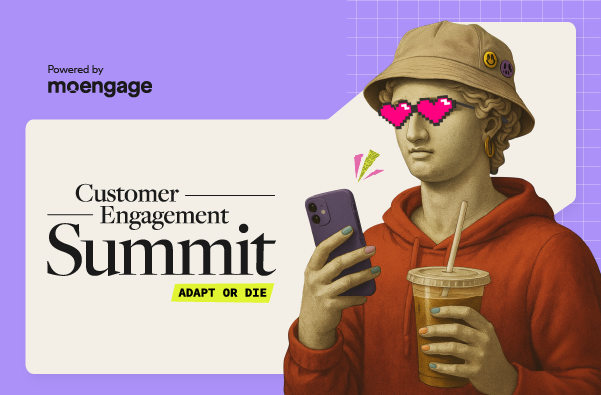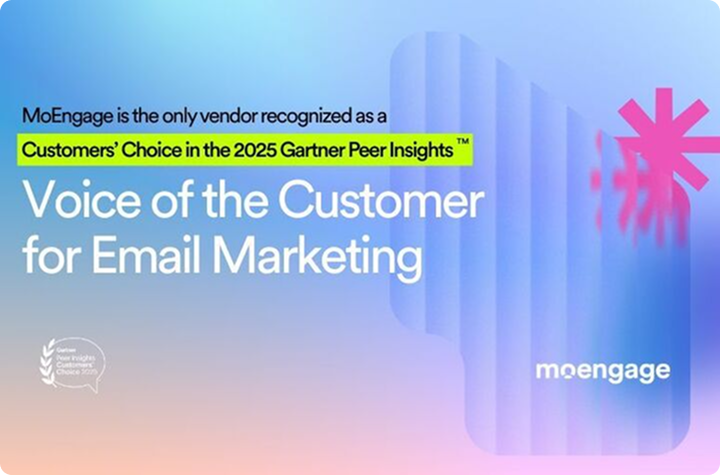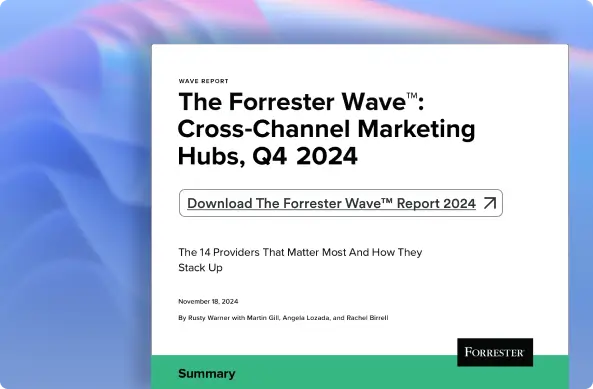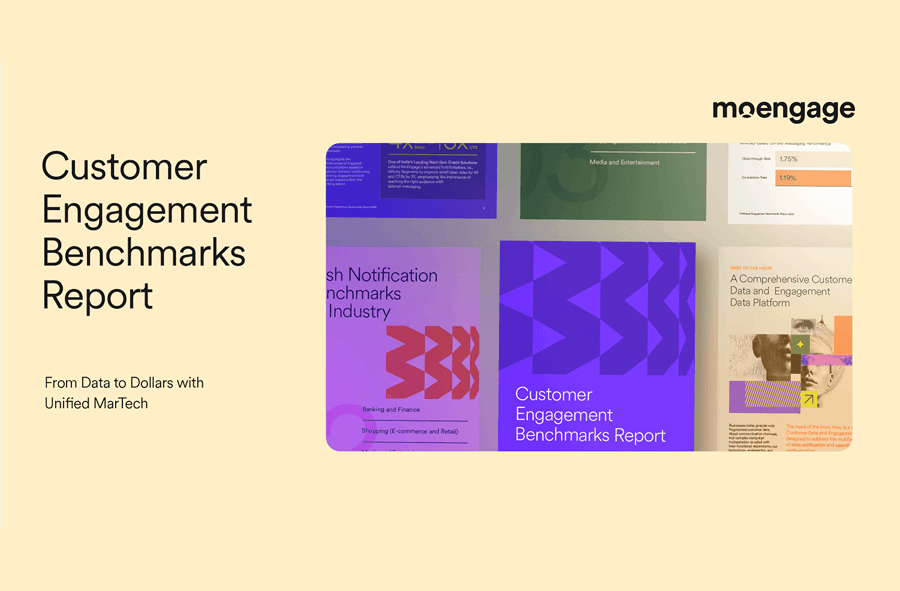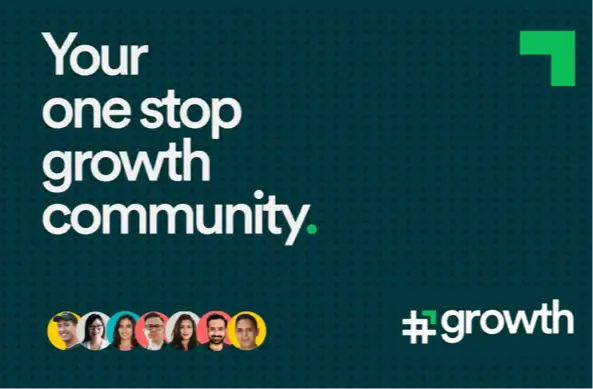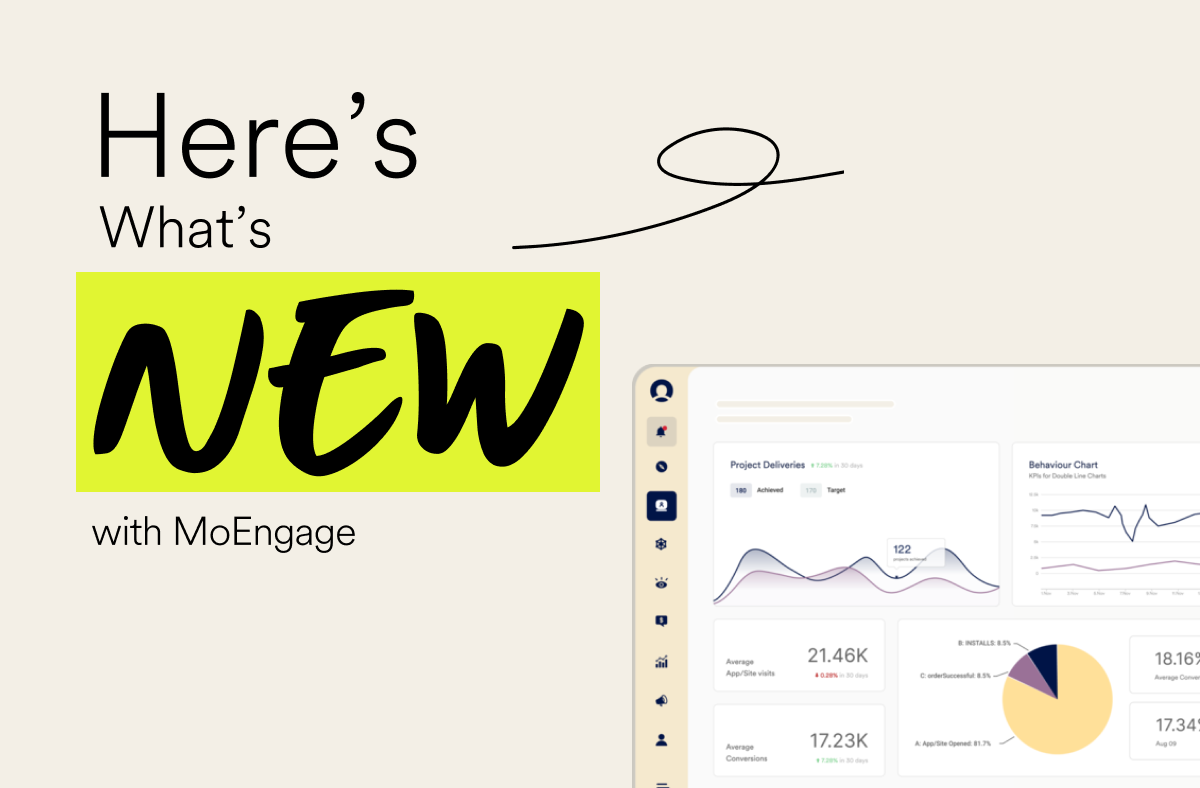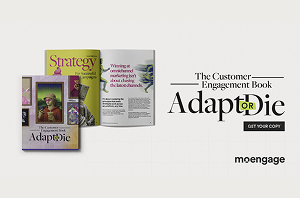Humanizing Data to Create a Personalized Customer Experience

Reading Time: 3 minutes
Raw data is just numbers in a spreadsheet with no real value. You must humanize it to identify patterns and correlations, predict trends, and personalize customer experiences. However, with brands receiving an overwhelming amount of data every day, humanizing it can seem complex.
To address this challenge and equip marketers with strategies to humanize data and personalize customer experiences, we invited Hope Barrett, Director of Product Management at SoundCloud, and Leigh Parlier, Digital Marketing Manager at Travel + Leisure, for a fireside chat, while Rachael Bergman, General Manager (North America) at MoEngage, moderated the interaction.
Below you’ll find the key takeaways from the fireside chat, which was a part of our Customer Engagement Mixer in Atlanta. You can also watch the session on-demand in case you missed the event.
Data Helps to Drive Personalization
Brands receive customer data from various sources. To leverage this data and drive personalization, brands must:
- Profile prospects to determine who will convert and who will not, and adapt their strategies and marketing communication accordingly.
- Engage with customers using a variety of methods. Travel + Leisure, for instance, offers sweepstakes, booths at events, and stands in its resorts to educate guests about the offers. People can also sign up to receive a phone call to learn more.
- Use data to help customers with discovery and engagement. SoundCloud, for example, uses customer data to recommend other artists that subscribers might like based on their preferences and notifies them whenever their favorite artist uploads a new track.
Real-time vs. Predictive Analytics
Real-time data is crucial to increasing customer engagement and keeping the platform dynamic. This is especially important when brands deal with time-sensitive information, such as informing customers about a property’s availability or when a favorite artist has uploaded a new track.
However, Leigh also recommends analyzing data that drives future actions to improve engagement. For example, Travel + Leisure understands the preferences of customers who prefer the same property every year at the same time and tailors their experiences and communication accordingly.
The tools and options for accessing data have evolved significantly, even more so in recent years. There’s real-time data that you act upon immediately, and then there’s data you can analyze more deeply to inform future actions.
– Leigh Parlier, Digital Marketing Manager, Travel + Leisure
The Importance of Streamlining Data
Since data comes from various sources, managing the timing and coordination of real-time communication across different channels without overwhelming the customer can be challenging.
To prevent such a situation, brands must streamline their data and take a sophisticated approach to data integration and communication. This will also give them a comprehensive view of customer data and enable them to make better predictions.
Continuous system refinement can further help brands become more responsive and accurate in predicting customer behavior and preferences.
At SoundCloud, we leverage our own recommendation engine, which we enhanced by acquiring a company last year. This engine uses data to suggest content to users based on their past interactions and preferences. We’re constantly looking to refine this system to make it more responsive and accurate in predicting user behavior and preferences.
– Hope Barrett, Director of Product Management, SoundCloud
Using AI Strategically
Integrating Artificial Intelligence (AI) and Machine Learning (ML) into the data analysis process is the right step forward in improving customer engagement and personalizing experiences.
SoundCloud, for instance, is using it to segment subscribers based on their interactions and preferences and tailor communication without overwhelming them with irrelevant content. However, it is crucial to understand its implications, industry differences, and specific use cases before integrating AI.
We’re cautiously exploring AI, ensuring we understand its implications before fully integrating it into our systems. We’re focusing on refining our data processes and ensuring they align with our strategic goals before deploying AI-driven solutions.
– Leigh Parlier, Digital Marketing Manager, Travel + Leisure
Concluding Thoughts
By effectively utilizing data and aligning the Martech stack to understand customer needs and foster meaningful experiences, you can create a customer-centric approach that sets your brand apart from the competition. The power to humanize data lies in your hands, and by doing so, you can revolutionize customer experience and drive impactful engagement.
Here’s a recap of another insightful session from our Customer Engagement Mixers:
If you found these recaps helpful, then stay tuned for more!


